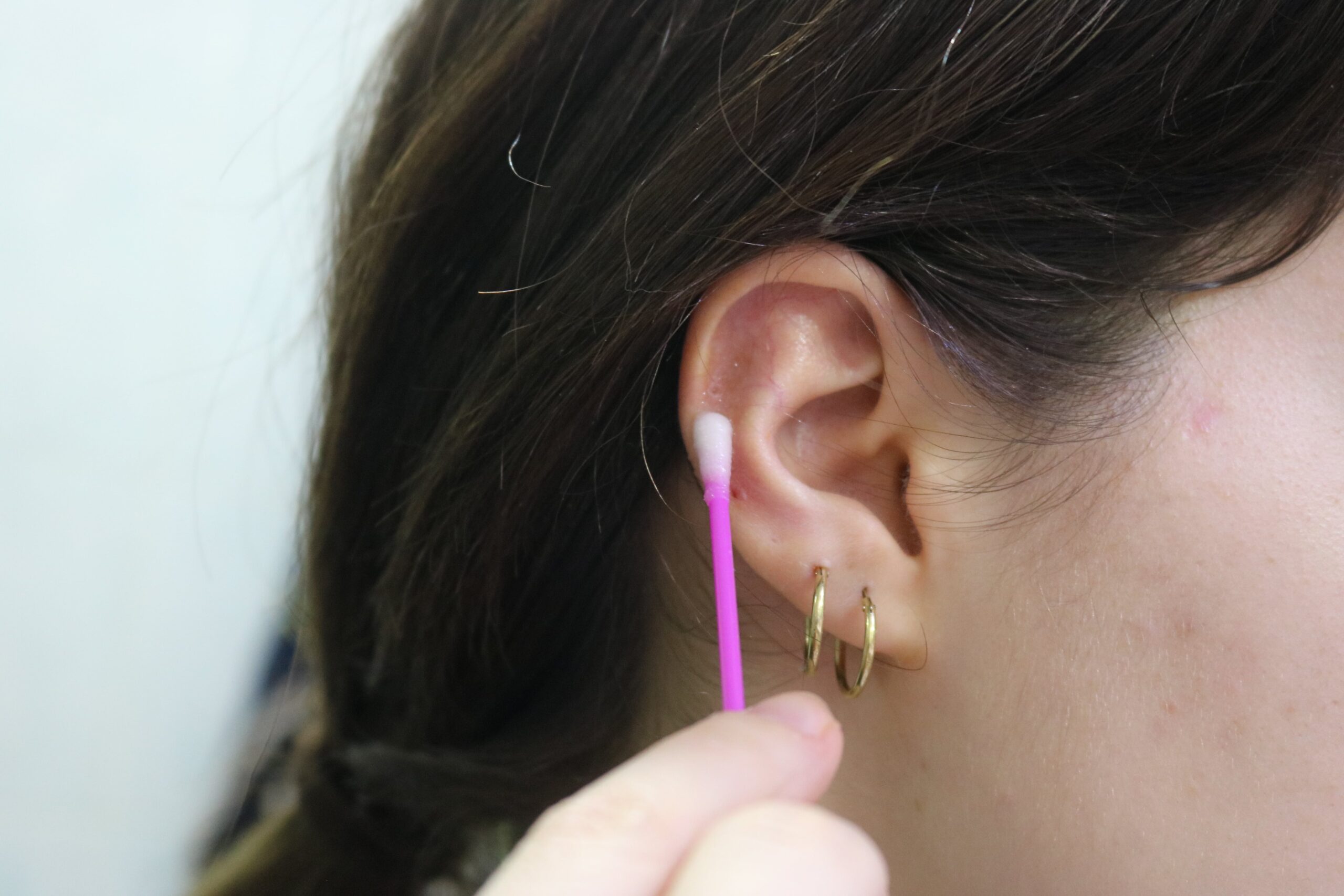Getting a new piercing is an exciting way to express yourself, but it also comes with responsibilities. Proper care is essential to ensure your piercing heals correctly, preventing infection and other complications. As with any health-related procedure, maintaining cleanliness is key to promoting healing and ensuring that your new piercing remains in top condition.
Here’s an expanded guide to help you keep your piercing clean and healthy throughout the healing process.
1. Always Wash Your Hands First
The most important step in piercing aftercare is washing your hands before touching your piercing. Even if you feel your hands are clean, they can still harbor bacteria and other harmful pathogens. By thoroughly washing your hands with soap and warm water, you reduce the risk of transferring harmful germs to the piercing site. Always make this a habit before you touch or clean your piercing.
Tip: Carry hand sanitizer with you if you’re out and about, but make sure you still wash your hands with soap and water as soon as you can.
2. Avoid Sleeping on Your Piercing
While it can be uncomfortable, one of the best ways to ensure proper healing of your piercing is to avoid sleeping on it. Pressure from your pillow or blanket can block airflow to the pierced area and increase the risk of infection. Additionally, constant pressure can disrupt the healing process, potentially leading to scarring or the piercing shifting out of place.
Tip: If you’re struggling to avoid sleeping on your piercing, consider using a travel pillow or a soft cushion to help keep your head elevated and avoid pressing your piercing into the surface of your bed.
3. Use Only Approved Cleaning Solutions
Keeping your piercing clean is essential for the healing process, but it’s important to use the right cleaning products. The wrong chemicals can irritate the piercing and delay healing. Stick to mild solutions that are specifically designed for piercings, such as saline solution, saltwater washes, or antiseptic sprays. You can also use antibacterial soap (unscented and gentle) if recommended by your piercing professional.
Avoid: Using harsh chemicals like hydrogen peroxide or rubbing alcohol. These products can dry out the skin, prolong healing, and even cause damage to the tissue around your piercing.
When cleaning, gently dab the solution on the area with a cotton swab or clean gauze. Do not twist or rotate the jewelry as this can disrupt the healing tissue and cause irritation.
4. Monitor for Signs of Infection
While most piercings will experience some minor swelling or redness during the healing period, there are times when you need to take extra precautions. If you notice increased redness, swelling, or pain around your piercing, it could be a sign of infection. A discharge (often yellow or green) or a bad odor are also common indicators that something may be wrong.
What to do: If you suspect an infection, it’s crucial to act quickly. See a healthcare professional who can assess your piercing and recommend the appropriate treatment. Do not remove the jewelry unless instructed by a healthcare provider, as doing so could close the wound and trap the infection inside.
5. Keep Your Piercing Dry and Clean
While it’s essential to clean your piercing regularly, make sure you also let it breathe. Keeping the area dry can help prevent bacteria from growing, especially when you’re healing. Avoid submerging your piercing in pools, hot tubs, or lakes as these environments may introduce bacteria.
Tip: After cleaning, gently pat the area with a clean towel to remove excess moisture.
6. Avoid Touching Your Piercing
The temptation to fiddle with a new piercing is common, but it’s important to avoid unnecessary touching. Every time you touch your piercing, you’re introducing new bacteria to the area, which can increase your risk of infection. Resist the urge to twist or move your jewelry, as this can disrupt the healing tissue and prolong the recovery process.
Tip: Keep your jewelry secure and leave it alone as much as possible. If you need to clean the area, use cotton swabs or pads to apply the solution gently.
7. Be Patient – Healing Takes Time
Piercings don’t heal overnight, and each type of piercing has its own recovery time. Cartilage piercings, for example, can take several months to fully heal, while earlobe piercings may take 6-8 weeks. It’s crucial to stay patient and give your piercing the time it needs to heal properly.
Healthy Piercing Care for Long-Term Results
Taking proper care of your piercing not only ensures it heals correctly but also helps you avoid any complications that can arise from poor aftercare. By following these tips—washing your hands, avoiding sleeping on your piercing, using approved cleaning solutions, monitoring for infection, and being patient during the healing process—you will help your piercing heal safely, allowing you to enjoy your new accessory with confidence.
Remember, if you’re ever unsure about any aspect of piercing care, consult with a professional piercer or your healthcare provider to ensure you’re on the right track. A little time and attention can go a long way in keeping your piercing clean and infection-free!





